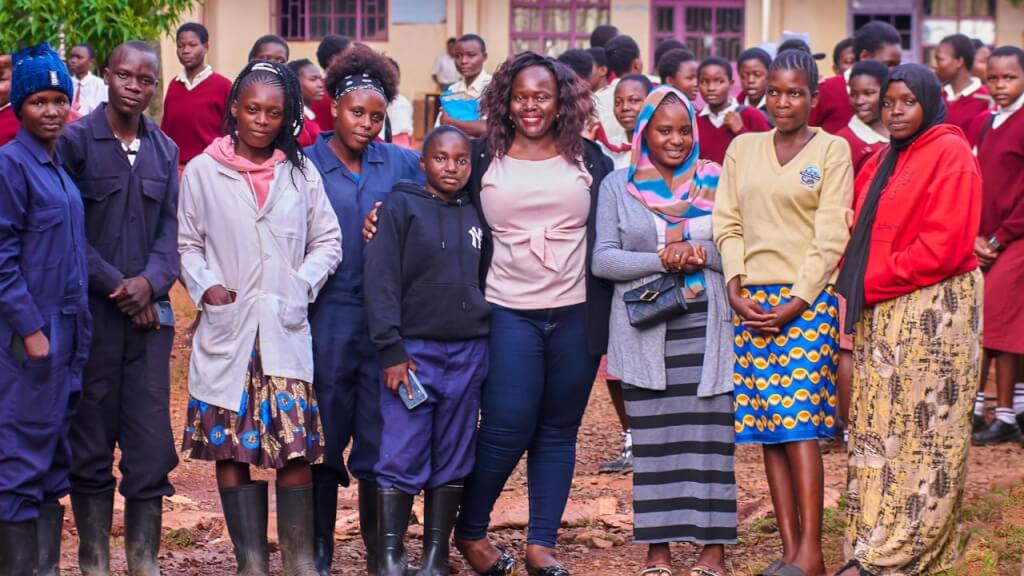The Tunawiri Pamoja's Young Women's Business Program in Mumias (Western Kenya), implemented in partnership with the International Convocation of Unitarian Universalist Women, is focusing on building young women’s capacities in the informal economy for long-term success.
In the spring of 2023, the Village Savings and Loans Association (VSLA) model was introduced to give the young traders an opportunity to create a savings culture and facilitate borrowing from a common lending pool. The women embraced this idea enthusiastically. To date, 20,500 KES (Kenyan shillings) has been raised for the common lending pool (about 140 USD); 20,200 KES of that has been loaned out. A welfare fund has also been created, currently holding about 3,270 KES. Seeing the benefits and growth of the first VSLA, a second cluster of women is organizing to start a second VSLA.
The young women are trying to recycle plastic and plan to use bottle tops to make laundry baskets. They are also learning how to make fabric softeners and sell them in the markets.
During the summer, the program continued with its second focus area: property and land rights. Land issues are among the most conflicted cases in Kenya due to tribal clashes between families and communities. Lack of awareness, patriarchal traditions, discrimination, and bureaucracy complicate the legal ramifications of this issue area.
In addition, the Nubian community members have a court case going. Nubians in this area, originally from southern Sudan, came as security guards to Nabongo Mumia, ruler of the Wanga Kingdom in the late 19th century, and the land where they settled is supposedly government land. They keep their traditions, customs, and marry within the community
During the sessions, the young women learned about how Kenyan law and international statutes are supportive of women’s land and property rights and about the legal process of acquiring property in Kenya.(1)Furthermore, they discussed life case studies to gain additional knowledge on land and property rights for women.
With one more session remaining on land and property rights, and given that most of the mothers in the community are widows who have not yet legally processed their land title deeds, participants have suggested holding a community dialogue session with widows to inform them of their land and property rights and also link them with organizations that might help them get the correct documentation for their lands.
The last topic of the program, sexual and reproductive health and rights, will be addressed in October and November. Thank you again to all who supported this project on Faithify!
Check out an earlier report of Tunawiri Pamoja's Young Women's Business Program, including videos: Marginalized Young Kenyan Women Build Skills
(1) This Policy Brief provides detailed information on women's land and property rights in Kenya. There is still more to be done to ensure women acquire and own property with ease in Kenya.






